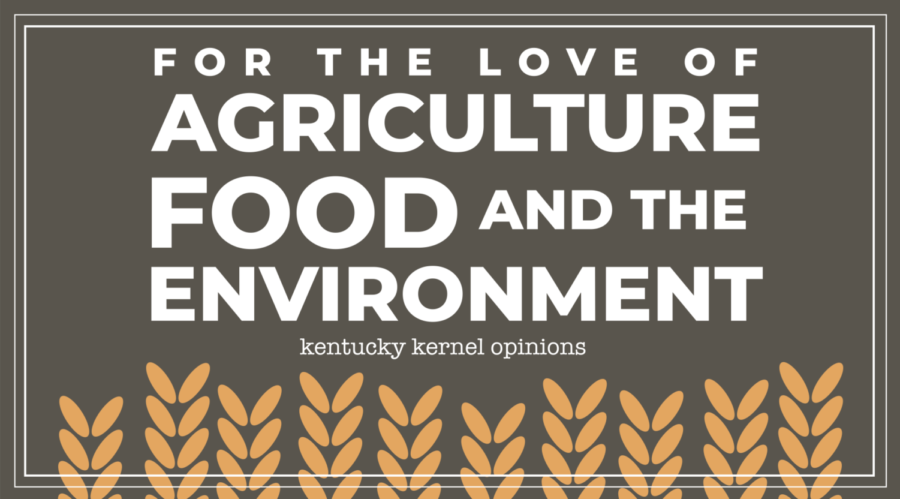Sustainable vs. local food: finding the overlap
October 28, 2019
My name is Kelly Walker and I’m a Natural Resources and Environmental Science undergraduate senior at UK with a focus in conservation and environmental education. Normally, I don’t take the time to introduce myself in my other articles, but this is the premiere of a monthly ongoing series following my journey as a student figuring out the balance of sourcing food responsibly in the face of climate change.
To start, let’s talk about the importance of understanding the difference between sustainable and local foods and honing in on where they diverge.
To initiate an open conversation about food in the context of sustainability, we first have to understand what words like “sustainability” or “local” mean. The word “sustainability” has a wide range of meanings and is applied in varying contexts. In this series, “sustainability” refers to the environmental, social and economic impact that food has on the planet. The sustainable production of food avoids, as much as possible, environmentally harmful practices like pesticide or fertilizer use. It also aims to support and respect workers and their health, while also being economically viable.
“Local” also appears frequently in the context of food production. It generally refers to food or other agricultural products that are produced near to where they are purchased. Although local food can reduce the fossil fuels expended in transit and supports the local economy, it’s also important to ask what exactly constitutes “local” for both sellers and consumers.
The word “local” doesn’t necessarily mean that a product traveled a certain distance to the grocery store. It also doesn’t guarantee social and environmental responsibility in the areas of hunger, food waste, overuse of fertilizers or pesticides, or animal welfare. Whatever “local” might mean to you, it’s essential to understand that local food isn’t necessarily grown sustainably.
These terms do, however, have some overlap. Local food that is produced sustainably is our best bet for a healthy global food system in the future. When a sustainably produced food is local, this allows for accountability between the producer and consumers. Knowing where your food comes from and appreciating a farmer’s hard work to implement sustainable practices is fundamentally different than blindly trusting the “Kentucky Proud” sticker to guarantee these important social, environmental, and economic dynamics.
Go to farmers’ markets and ask the farmers questions about their farming practices, or simply Google the name of the farm and read through their website to get an idea of where they stand on sustainability. Support our local co-op, Good Foods, which pairs the terms sustainable and local together in its mission statement. Start regularly purchasing your groceries there and make it a norm to Google the farms on the labels of your purchases.
When it comes to sensitive and multi-dimensional topics like climate change and sustainability, it’s important to keep an open mind and think critically together about how to move forward as a generation of college students. My goal with this series of articles about how to build and support a more sustainable food system is not to find and provide black-and-white answers. These simply do not exist. My goal is rather to inspire you to practice your autonomy and decide for yourself what you think, and how you decide to put your values into action.
Throughout this series, I will present different facets of our current food system and explore the dynamic between local and sustainable foods, emphasizing that these concepts go hand-in-hand to achieve a more sustainable food system. Each month, I’ll connect pieces of our local food system, including hunger, food waste, packaging, sustainable agricultural practices, and animal agriculture, to examples from our campus and community. Tune back in next month to talk about hunger, just in time for Thanksgiving.
For the love of agriculture, food, and the environment is a new column by UK’s The Food Connection intern, Kelly Walker.
































































































































































